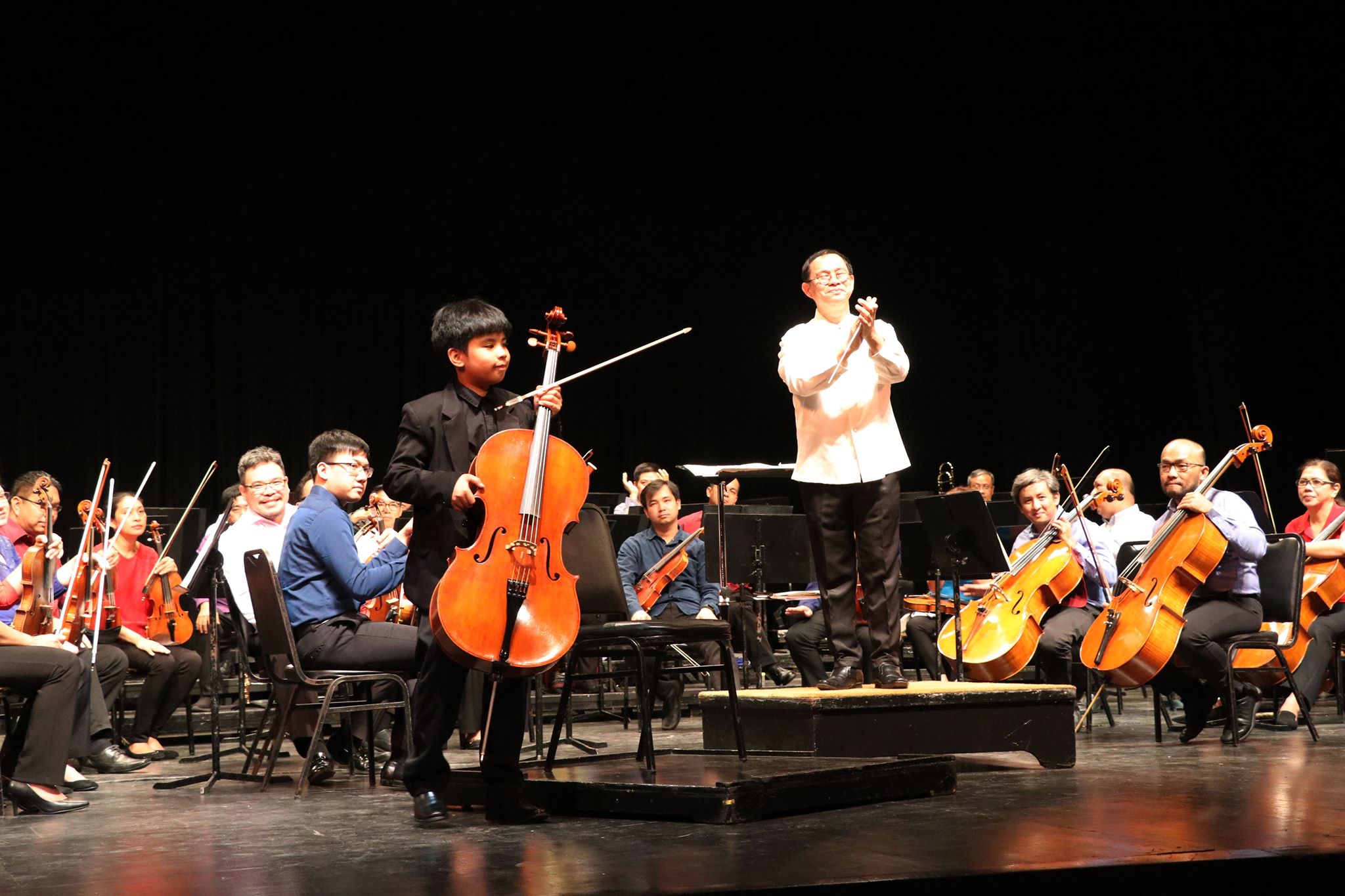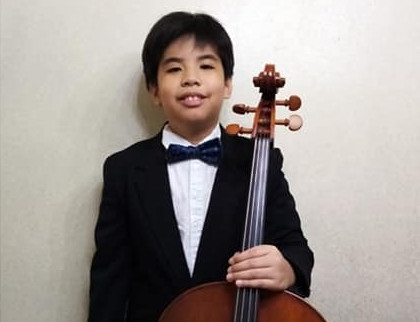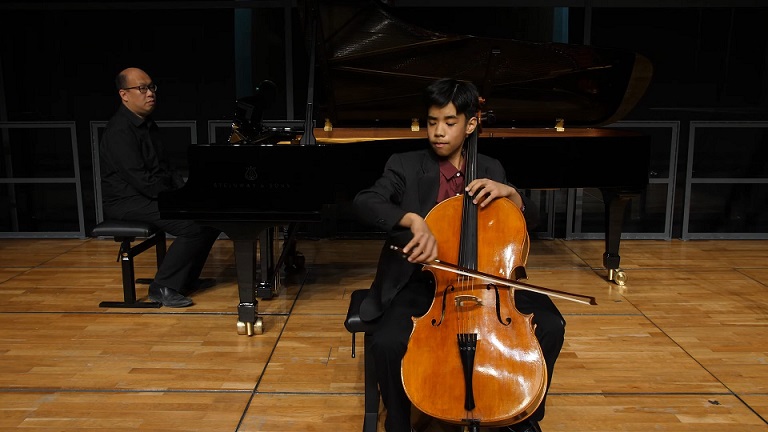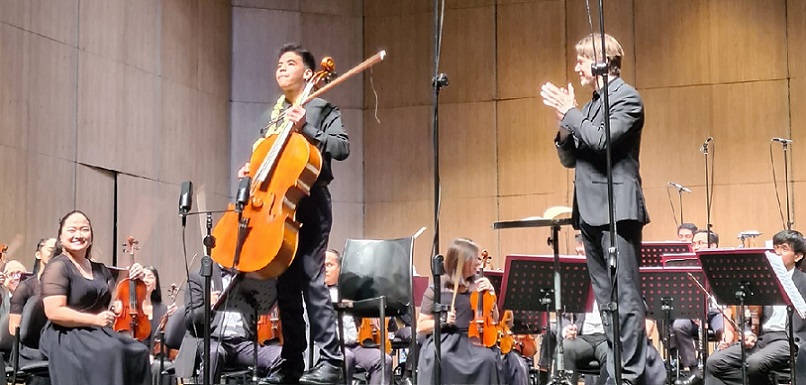The recently concluded 2018 Menuhin Competition in Geneva, Switzerland yielded two brilliant prizewinners ages 10 and 11 — Christian Li and Chloe Chua — in the junior competition and with an 18-year old Armenian — Diana Adamyan — getting the top prize in the senior division.
It is the first time in the junior division that the first prize was awarded to two prizewinners.
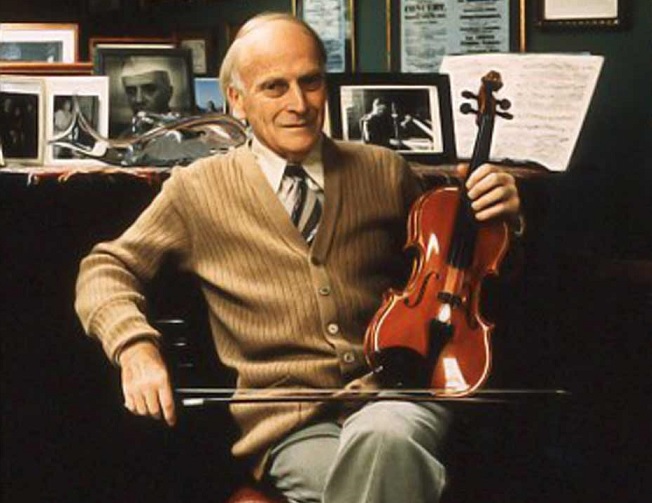
The legendary Yehudi Menuhin. Musician with a heart and a human rights advocate. Photo by Malcolm Crowthers.
Filipino music lovers hold a special fondness for the legendary Yehudi Menuhin – after whom the competition was named. He performed with the Manila Symphony Orchestra at the UST in 1948 and later gave a farewell concert at the Rizal Memorial Coliseum on the same year. It is the same venue where the equally iconic conductor, Herbert von Karajan, led the Vienna Philharmonic in a landmark concert in the 50s.
Born to Jewish parents in New York, Menuhin performed for Allied soldiers during World War II. Along with composer Benjamin Britten, he performed for the surviving inmates of several concentration camps.
It is possible that Menuhin has learned of European Jews who fled to the Philippines from 1937 to 1941 escaping the cruelty of the Nazis only to face another set of tyrants under Japanese occupation.
One such survivor of the German concentration camp and Japanese atrocities was Viennese conductor Hebert Zipper who became the second conductor of the Manila Symphony Orchestra founded by Alexander Lippay in 1926.
Menuhin returned to Germany in 1947as soloist with the Berlin Philharmonic Orchestra under Wilhelm Furtwängler as an act of reconciliation. He was the first Jewish soloist of the Berlin Philharmonic after the holocaust. He told Jewish critics that he wanted to rehabilitate Germany’s music and spirit.
After that landmark concert in Germany, he flew to Manila in 1948 from San Francisco to perform with the Manila Symphony as soloist in the Mendelssohn concerto.
The Filipino connection of Menuhin resumed when the Asian Youth Orchestra he founded once chose a Filipino concertmaster in the person of Gina Medina, now concertmaster of the Manila Symphony.
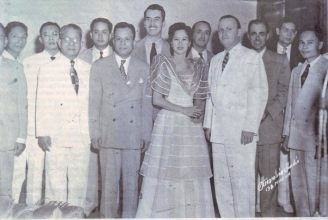
Yehudin Menuhin with music teachers of the University of Santo Tomas after a Manila performance in 1948. Also in photo is Maestra Mercedes Matias Santiago. Photo from Pablo Tariman’s files.
In 1983, Menuhin and Robert Masters founded the Yehudi Competition for young violinists the prizewinners of which had become byword in the concert halls namely Tasmin Little, Nicolaj Znaider, Ilya Gringolts and Ray Chen, among others.
A human rights advocate, Menuhin did not spare his Jewish awards giver when he received the prestigious Wolf Prize from the Israeli Government.
In the Israeli Knesset, he criticized Israel’s continued occupation of the West Bank and minced no words: “This wasteful governing by fear, by contempt for the basic dignities of life, this steady asphyxiation of a dependent people, should be the very last means to be adopted by those who themselves know too well the awful significance, the unforgettable suffering of such an existence. It is unworthy of my great people, the Jews, who have striven to abide by a code of moral rectitude for some 5,000 years, who can create and achieve a society for themselves such as we see around us but can yet deny the sharing of its great qualities and benefits to those dwelling amongst them.”
Meanwhile, the closing concert of the Menuhin Competition revealed the best of the prizewinners.
In the senior division, top winner Diana Adamyan dazzled as soloist in the Bruch concerto with the Royal Philharmonic Orchestra under Julian Rachlin. By coincidence, it is the same violin concerto recorded by Menuhin.
In the junior division, 11-year old Chloe Chua showed both virtuosity and innate musicality in the Vivaldi Four Seasons concerto (Winter) performed with the L’Orchestre de Chambre de Genève.
In Manila, kids also show exquisite talent as they are nurtured by the mentors of the Manila Symphony Orchestra. One such talent is ten-year old cellist Damodar Das Castillo who will soon leave for Austria to study at Vienna Mozarteum.
On YouTube, one heard him play Saint-Saens’ Dying Swan, Rachmaninoff’s Vocalise and Rimsky-Korsakov’s Flight of the Bumblebee and who did he remind one of?
Cecile Licad of course.
Although the country has a share of good cellists, the country has not really produced a cello prodigy with great potentials.
After hearing the young Castillo, one can say here at last is another potential candidate for cello stardom which eluded us for many years in the era of Chino Bolipata, Renato Lucas and Wilfredo Pasamba, among others.
Playing the Haydn cello concerto in C with the string section of the Manila Symphony Junior Orchestra and the Saint-Saens cello concerto with pianist Dingdong Fiel, you discover a potentially great cellist trapped in a ten-year old body.
His tones and musicality were way beyond his years and indeed how lucky this country is to produce great talents showing great promise at an early age.
But discovering a prodigyrequired diligent nurturing. It will involve a lot of sacrifice from parents and a lot of attention from good teachers.
Here’s hoping the young Castillo will realize his full potentials and hopefully the CCP and NCCA can pitch in to help.
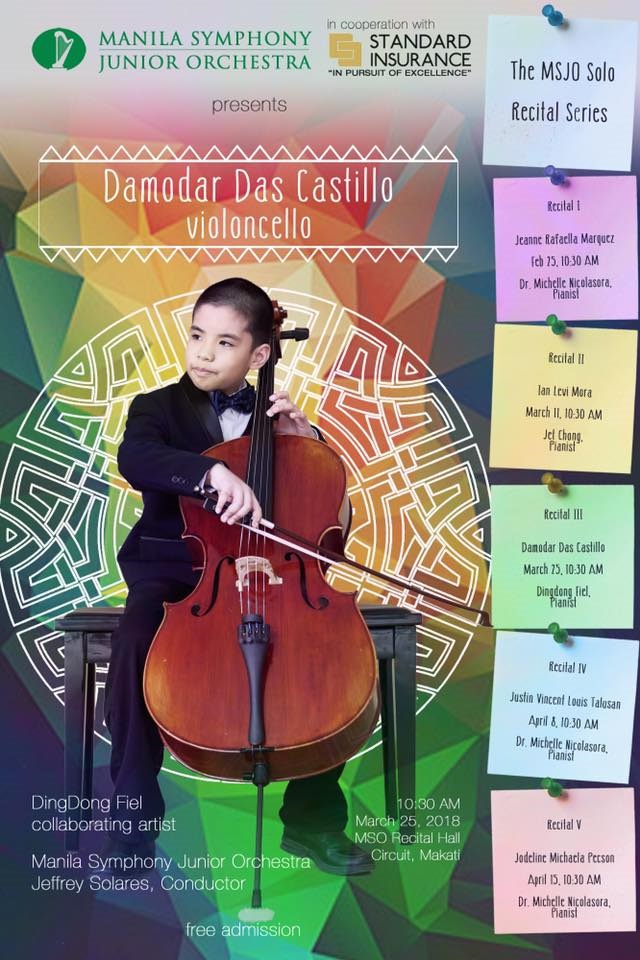
Ten-year old cellistDamodar Das Castillo on the cover of his recital program.A major cello talent in the making.
